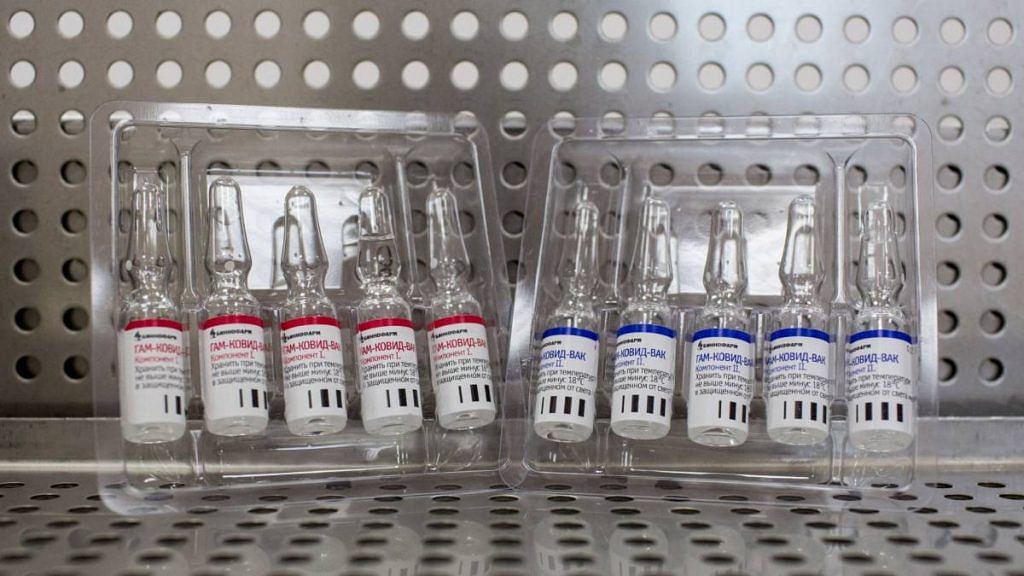New Delhi: Russia’s Sputnik vaccine will be tested on 100 participants in India before proceeding for a larger trial, the government expert panel told Dr Reddy’s, the pharma company that will supply the vaccine in the country.
The Russian Direct Investment Fund (RDIF), Moscow’s sovereign wealth fund, tied up with the Indian drug maker last month to supply 100 million doses of Sputnik V — the vaccine which has been found to produce an immune response with no serious adverse effects — in India after receiving the necessary regulatory clearances.
On Saturday, the company along with RDIF, announced that they have received approval from the Drug Control General of India (DCGI) to conduct phase 2 and 3 human clinical trials.
The approval is based on the recommendations of the Subject Expert Committee (SEC) on Covid-19 vaccines and drugs.
“The firm should generate safety and immunogenicity data on 100 subjects in Phase II clinical trial and submit for evaluation before proceeding to Phase III clinical trial,” the SEC decided in a meeting on 16 October, according to the minutes uploaded on the Central Drugs Standard Control Organisation’s (CDSCO) website.
The CDSCO is the health ministry arm that regulates the quality of drugs and vaccines in India.
The objective of the trial is to establish the safety of the vaccine among Indian participants along with establishing “immunogenicity”, which means that the vaccine generates an immune response in the participant’s body.
The SEC gave its approval 10 days after it had rejected Dr Reddy’s proposal to evaluate the vaccine in a bigger phase 3 trial.
The panel, in a meeting dated 5 October, had recommended phase 2 trial, which is held among a smaller number of participants.
Also read: Scientists flag gaps in Lancet study that claimed success of Russian Covid vaccine Sputnik V
Other recommendations in the revised proposal
After facing rejection, the Hyderabad-based drug maker presented a revised protocol to conduct phase 2 and 3 clinical trials in India in line with the recommendations of the committee.
The expert panel, after a “detailed deliberation”, said participants enrolling in the trial should first undergo RT-PCR testing — the gold standard test for diagnosing Covid-19 — within 72 hours prior to enrolment.
The panel also said that “Th1 Vs Th2 optimization may be assessed as an exploratory objective”.
Exploratory objective means the outcome of the trial could be used in future research. The committee has suggested looking for a scenario where participants could produce a balanced “Th1 and Th2 response” — the hormonal messengers responsible for most of the biological effects in the immune system.
The company has also been asked to distribute the clinical trial sites geographically to increase the representation of participants from different states in India.
Sputnik V the first registered Covid vaccine
According to the Sputnik V website, the vaccine became “the first registered Covid-19 vaccine on the market”.
It is an adenovirus vector-based vaccine, which is one where a part of the coronavirus is inserted into another virus and delivered to the body, following which the inserted coronavirus part, usually the spike protein molecule, is discharged. The body then recognises this as a foreign pathogen and mounts an immune response.
The vector used here is the human adenovirus, a group of respiratory viruses that cause common cold and flu-like illnesses in humans and animals.
“Adenoviral vectors are considered extremely safe, and are some of the easiest to engineer,” the website claims.
Also read: Russia’s Sputnik vaccine gamble is all about Vladimir Putin
